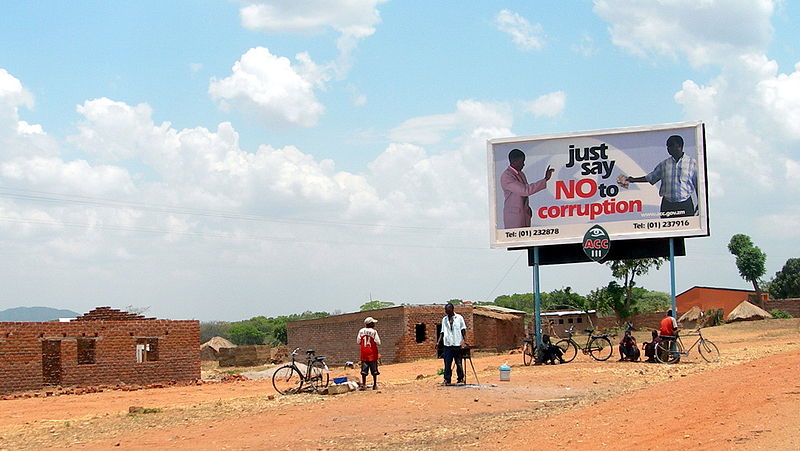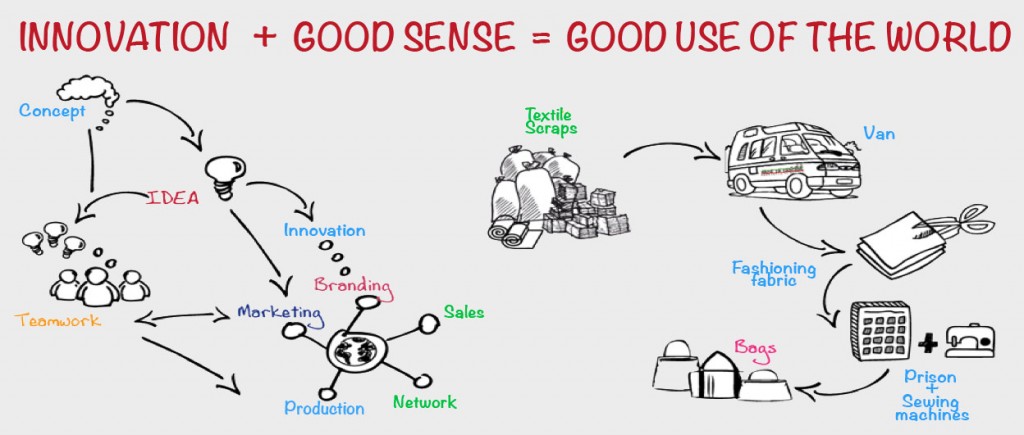When our department head asked us to collaborate on this blog, I wondered what perspective and direction I would take.
The easiest path would certainly have been moral sensationalism: identifying some exceptional case of shady business practices and starting a more or less circumstantial discussion about the ethical and moral responsibilities of the people and institutions involved.
I presume the reader is aware that the national and international press and, obviously, the Internet are already full of works of this type. To tell the truth, I am not sure this modus operandi is the most effective way to improve society.
There’s no use complaining more than we already do. And I don’t believe that pointing fingers at those who have committed an offense or a moral misdeed is the best way to build a better world.

Best Practices instead of negative cases
In these next few months, I will try to discuss positive phenomena, i.e., so-called best practices in business ethics: stories of individuals and organizations that have successfully contributed to the common good. By doing so, I hope to move away from the reactionary stance of business ethics based on moral condemnation and propose a proactive vision centered on the discussion of models that can actually change things for the better.
I will have to give up on the sensationalist fragrance of bad news, but I will certainly make up for it in realism. By providing details about what is intrinsically good, we are forced to reflect on our own everyday lives and, above all, our own responsibilities.
I will focus on comprehensive human development and more specifically on the ability of professional organizations, including public and private enterprises, NGOs and socially focused businesses, to contribute to the comprehensive human development of workers.
At this point, I am sure attentive readers will already have a few questions:
- The first regards the meaning of the concept of “comprehensive human development.” What does comprehensiveness have to do with human growth? A quick but incomplete response states that comprehensive development has to do with the individual nature of the person. True individual development can only occur when all aspects are taken into consideration, i.e., the physical, psychological and, of course, spiritual dimensions.
For example, comprehensive development does not mean that bodybuilders should just work on their muscles or that graduate students should only improve their mathematical skills. Comprehensive development requires growth and improvement in the many different areas that make up the human being (once again, the physical, psychological and spiritual areas). Comprehensive human development therefore calls for a balance between all these different components of a human being.
- The second matter I would like to discuss involves the ability of professional organizations to contribute to this type of development. Can these organizations really support the comprehensive development of their workers?
The answer is a resounding “yes.” Professional organizations certainly have the chance to contribute to the development of workers and other stakeholders. The key to success here is the desire to use this enormous opportunity to accept and implement more ethical and responsible business practices. Embracing such practices places the focus on people and their comprehensive development.
In this section, I will try to propose and discuss examples of businesses that have successfully created operating models that support comprehensive personal development.
Officina Creativa and Made in Carcere
I would like to begin with Officina Creativa, a social cooperative founded in 2007 by Luciana Delle Donne, a bank manager who grew tired of her life in the Milanese financial and business world and decided to return to her home town of Lecce. There, she started her own business with a strong focus on social development.
Of note among Officina Creativa’s many projects is its brand, Made in Carcere, a line of fashion accessories that combines two social objectives: recycling secondhand textiles and employing female prisoners.
The company’s primary aim is to provide training to these women, who learn to cut and sew and then join a real work environment. The prison workshop provides full-time employment to about 20 women.

Naturally, Officina Creativa’s activities have evolved over time. In an attempt to follow a more commercially viable course, Officina Creativa has also begun offering more traditionally marketable fashion accessories for women. “We clearly do not intend to compete with the bigger fashion producers”, says Luciana Delle Donne. We are trying to respond to ever-growing commercial demands. Selling our products is an increasingly important way for us to finance our activities.” Competitiveness and social impact come together.
This video (in Italian) shows the explanations of Luciana Delle Donne and some aspects of the works of Made in Carcere:

The Made in Carcere brand offers bags, bracelets, organizers, headbands and other accessories that are not just made by, but also designed by the workers in the cooperative.
Made in Carcere’s philosophy is based on the ideas of hope and giving people and society as a whole a second chance. It offers a second chance to convicted women and gives a new life to recycled fabric. It is not just a message of hope, integrity and solidarity, but also one of freedom and respect for the environment.
The study of Officina Creativa’s projects reveals that this organization not only provides support with technical skills (sewing and tailoring), but also stimulates comprehensive human growth and development. Paradoxically, the company proposes the idea of working in prison as a way of gaining financial independence and freedom of action.
“Those who come to Officina Creativa do so of their own choice. None of the volunteers or prisoners is forced. This initiative was created out of free choice and is based on absolute liberty. In this case, I believe the chance of working inside a prison actually represents for many people an opportunity to find freedom within physical confinement. By working well, people can rediscover that sense of true freedom.”
This approach to growth and development offers another important advantage for people in prison: socialization. “Here there is no room for individual heroes. Right from the beginning, they learn to work and collaborate together. Learning how to collaborate with others is fundamental in the integration process. We are now a group and the open-space workshop allows the women to share their time together. There’s this idea that we are building something together.”
All the activities of Officina Creativa are charged with the theme of transcendence. Their operating model perfectly explains this attention to personal initiative. “Everything starts from a single concept. After much group discussion, it becomes an idea, which can then lead to innovation. We don’t just want to produce goods to sell, but are interested in proposing social innovation that can change things for the better!”

The Made in Carcere model
Luciana Delle Donne’s initiative should give us all something to think about. This small workshop of prisoners produces bags and accessories that generate considerable market interest. It means that competitiveness, social impact and comprehensive human development at the same time are all truly possible!



The Officina Creativa story is actually very inspiring. It’s nice to hear about companies and individuals who promote positive social change and social growth in their business ethics. On one hand, they’re providing inmates with the opportunity to work (as the article states, the ability to choose to work is freedom,) and at the same time getting discounted labour and costs. It’s a win-win for both ends. Many companies might shun the idea of working with prisoners for various reasons, but if you’re choosing on your own free will to work for that company in prison and not forced into it, how is there a downside? It’s a solid business marketing strategy from Officina Creativa’s end, not just in the sense that they can make quality products for a low cost, but that it gives them positive PR. Proof? You’re writing about them right now in a positive sense.
Personally, I can’t see a downside to creating comprehensive development within the workplace. It makes your employees feel better and more inspired and gives them more well rounded profiles and personalities. I think that investing a small percentage of your annual projected revenue into creating this kind of growth is a solid strategy. You don’t even have to do this yourself. There are plenty of educational and learning resources that can help people do this. Companies that run training seminars and university’s that help people learn and earn degrees are just some of the examples.
Anyway, those are my thoughts.
Regards,
Jonathan